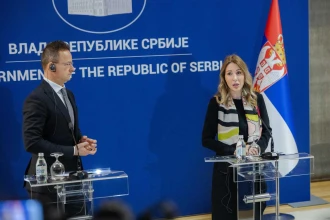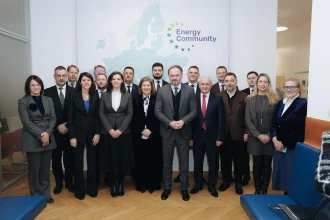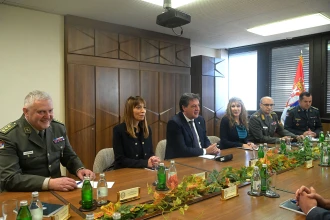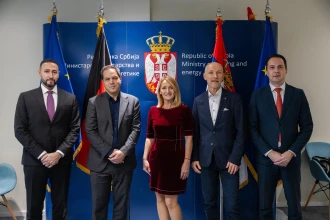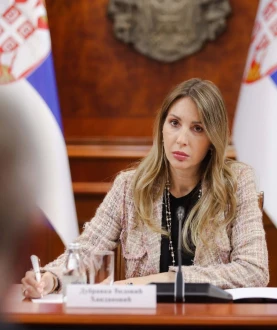Minister of Mining and Energy, Dubravka Djedović Handanović, signed a Memorandum of Understanding today in Kladovo on behalf of the Government of the Republic of Serbia with the Minister of Energy of Romania, Sebastian Burduja, concerning the construction of a gas interconnector.
Djedović Handanović: Memorandum of Understanding Signed for Serbia-Romania Gas Interconnector Construction Project
The construction of this gas pipeline will establish an additional route for natural gas supply, connecting the Mokrin hub in Serbia with the BRUA transmission gas pipeline in Romania.
"Our cooperation in the field of energy for more than five decades has been a crucial support for the security of electricity supply for both citizens and the economy in our two countries. This is evidenced by the fact that in 2023, 28% of the total exchange between our countries was in electricity trade. With today's signing of the Memorandum of Understanding on the construction of the Serbia-Romania Gas Interconnector, with a capacity of 1.6 billion cubic meters, a new stage of energy cooperation between our countries begins. Thanks to the connections with Romania and Bulgaria, and soon also with North Macedonia, Serbia is becoming an indispensable transit country and a key partner in ensuring the energy security of the countries of Central and European countries when it comes to gas supply," said the Minister.
In Serbia, this bi-directional gas pipeline for natural gas transmission will be 13 kilometers long, while in Romania it will extend approximately 86 kilometers long. The design capacity is at least 1.6 billion cubic meters of gas, and the section on the Serbian side will be completed by 2027.
This project represents a significant step in strengthening the energy security of both countries and integrating the regional market by diversifying supply routes.
"Today, Romania and Serbia have taken an important step towards interconnecting their natural gas transmission systems. The memorandum serves as the foundation for both countries to begin the BRUA-Mokrin investment. At the same time, we are closely cooperating to accelerate power interconnections, with all the prerequisites in place to complete the Rešica-Pančevo section in the first half of 2025. It is essential for energy to flow easily between our countries, ensuring two key elements: a real, competitive market that will bring favorable prices to consumers, and energy security through diversification of supply sources. These combined elements, as well as the infrastructure investment, will foster confidence, economic growth, job creation, and development for the entire region," said Energy Minister Sebastian Burduja.
Following the signing of the Memorandum, a meeting was held with the ministers and the directors of energy companies from both countries. The meeting focused on the potential for the development of the project of the pumped storage hydropower plant Djerdap 3 and the Trans-Balkan Corridor.


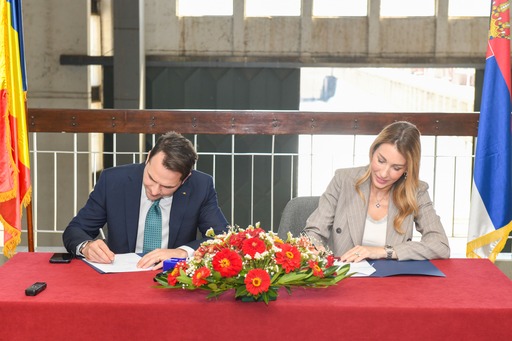
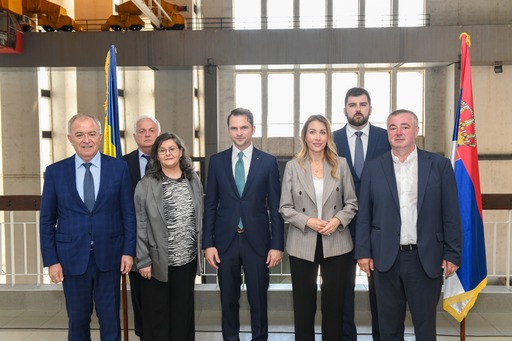
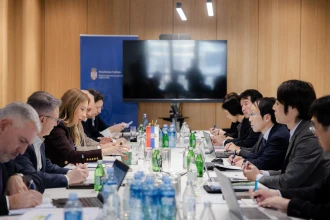
.webp)
